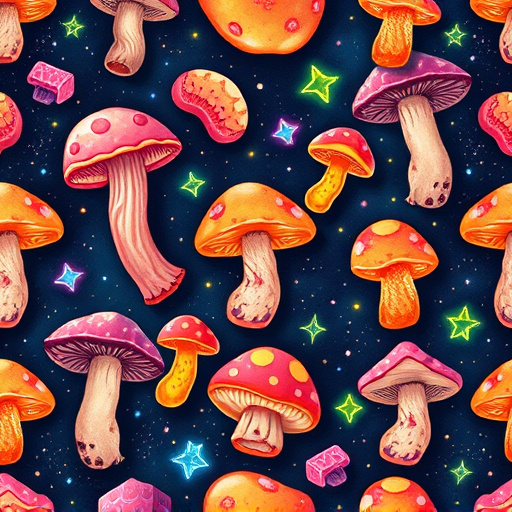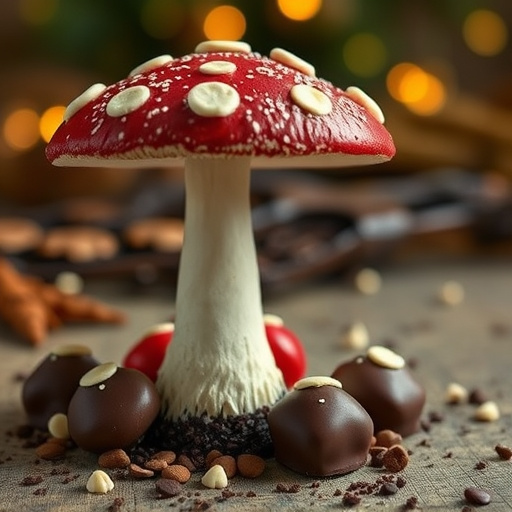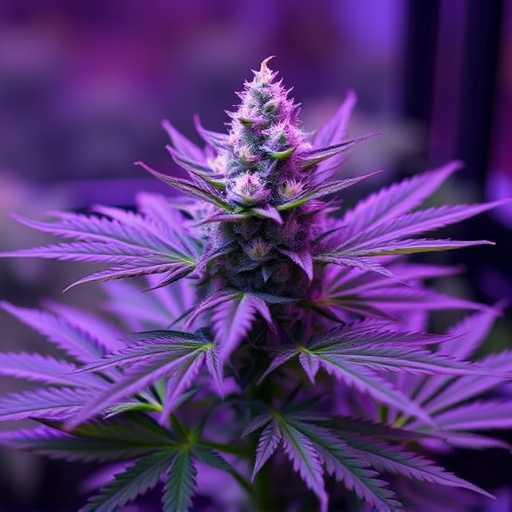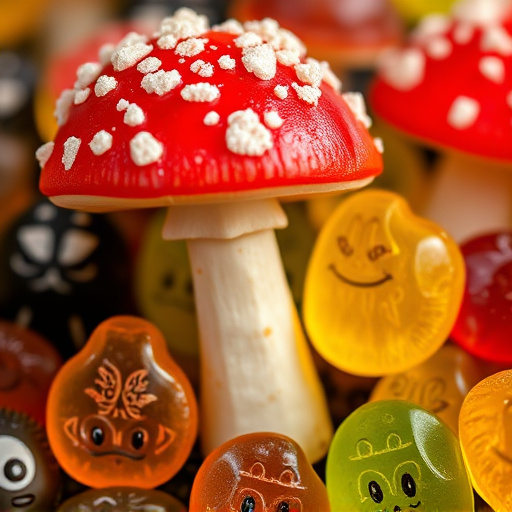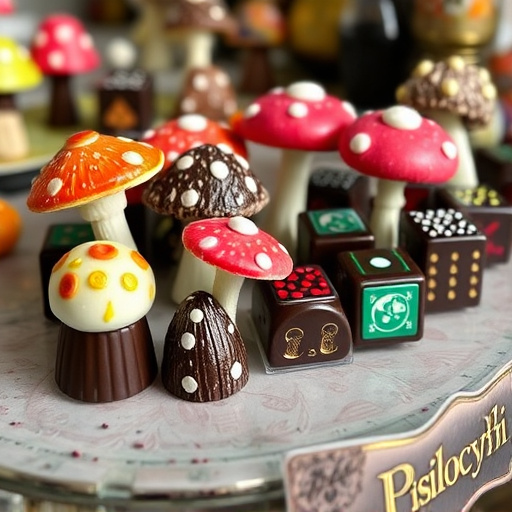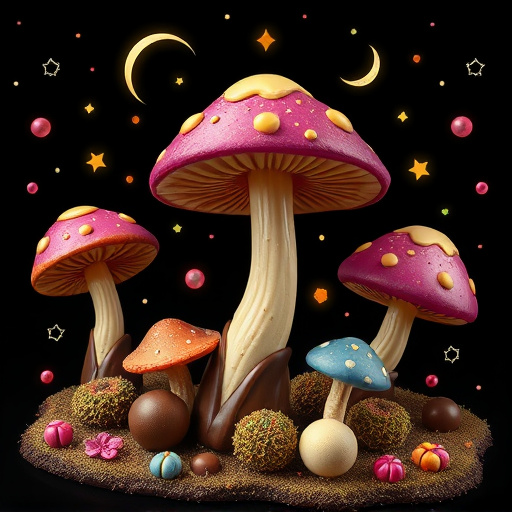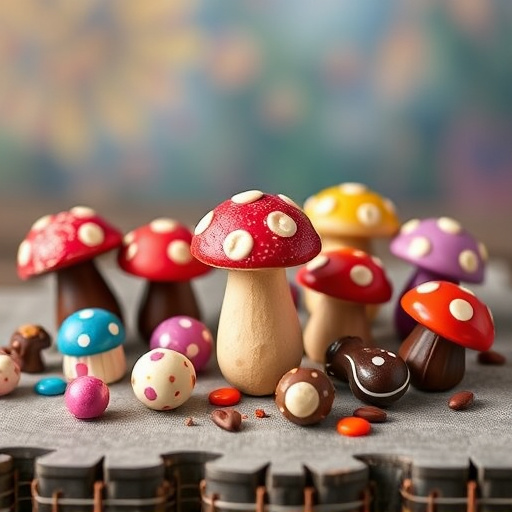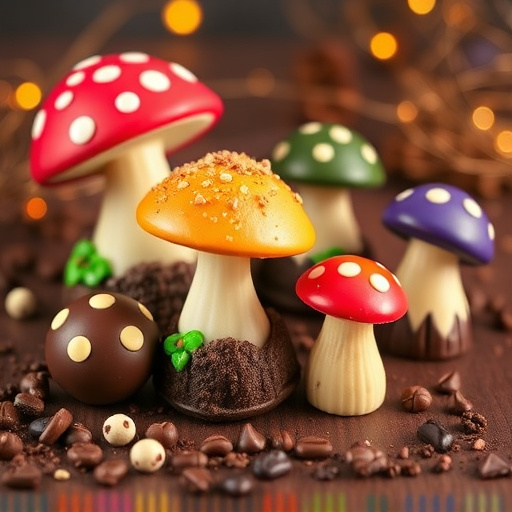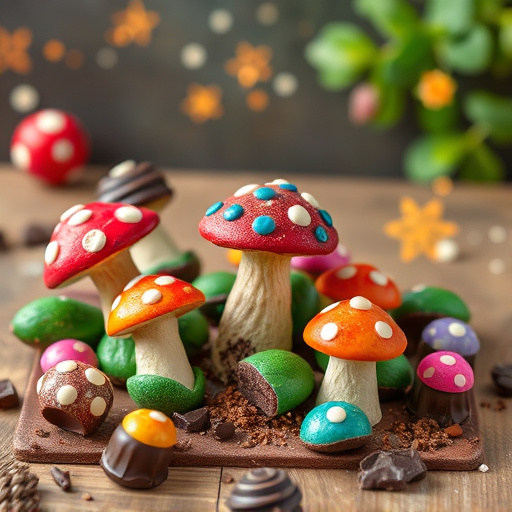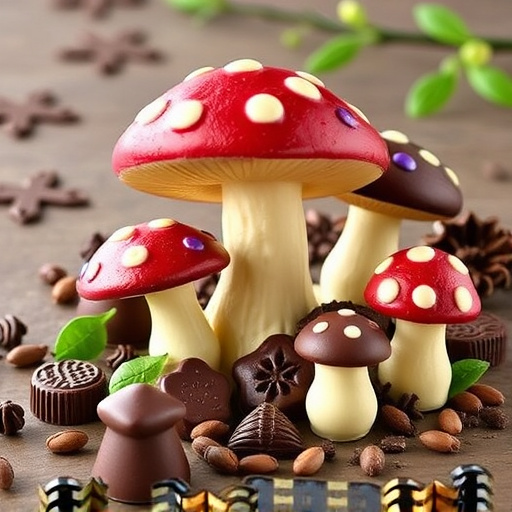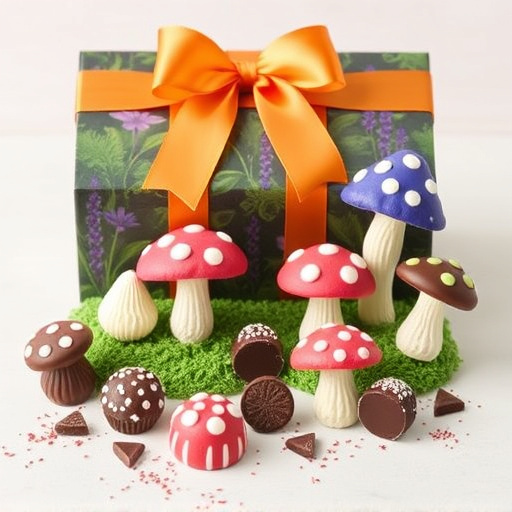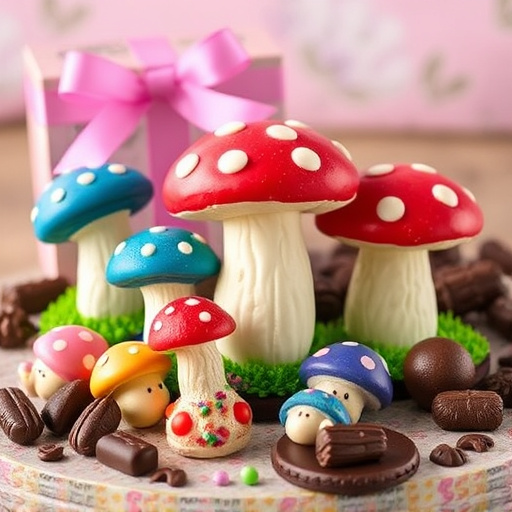Magic mushroom chocolates, containing psilocybin, are marketed for therapeutic benefits like depression relief due to their interaction with brain serotonin receptors. However, significant positive effects are often attributed to the placebo effect – users' expectations and beliefs significantly impact their experience. While claims include enhanced creativity and well-being, scientific evidence of lasting benefits is scarce. Magic mushroom chocolates carry risks including anxiety and paranoia, especially for inexperienced users, emphasizing the need for thorough research and responsible consumption.
“Unveiling the mysteries of Magic Mushroom Chocolates: Exploring their potent effects on mind and body. In recent years, these chocolate treats infused with psilocybin have garnered attention for their potential therapeutic benefits. This article delves into the science behind their magic, examining how the placebo effect influences user experiences. We’ll deconstruct reported advantages, such as enhanced creativity and mental clarity, while also discussing potential risks. Understanding the interplay between psychology and these unique confections is key to navigating their effects.”
- Understanding the Science Behind Magic Mushroom Chocolates
- The Placebo Effect and Its Role in Perceived Effects
- Deconstructing Reported Benefits and Potential Risks
Understanding the Science Behind Magic Mushroom Chocolates
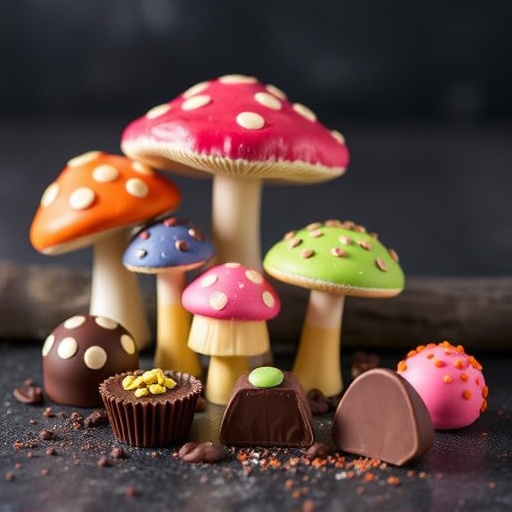
Magic mushroom chocolates, also known as psilocybin chocolate, are gaining popularity for their potential therapeutic effects. However, understanding the science behind their impact is crucial. Psilocybin, the active compound in magic mushrooms, is a powerful psychedelic that interacts with serotonin receptors in the brain. When consumed, it can alter perception, mood, and cognition.
Research suggests that psilocybin can induce a placebo effect, where individuals experience improvements in mental health conditions such as depression or anxiety. The placebo effect refers to the phenomenon where a person’s belief or expectation about a treatment influences their actual response to it. In the context of magic mushroom chocolates, the positive expectations and setting during the experience can contribute to the therapeutic outcomes, making them more than just a treat but potentially a tool for mental wellness.
The Placebo Effect and Its Role in Perceived Effects
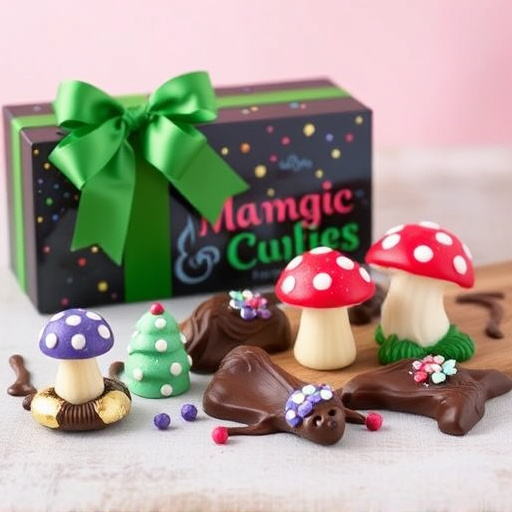
The perceived effects of magic mushroom chocolates, or any psychedelic substance for that matter, are not solely determined by the chemical composition alone. One significant factor that influences how individuals experience and interpret these substances is the placebo effect. Placebo effects refer to the phenomenon where a person’s expectations, beliefs, and psychological state can alter their physical and mental responses to a treatment, whether it’s real or imagined.
In the context of magic mushroom chocolates, if an individual believes that the chocolate will induce a profound psychedelic experience, they might be more likely to feel its effects—not because of any inherent change in their biology but due to heightened sensory perception and expectations. This suggests that the mind plays a crucial role in navigating the perceived benefits of these substances. The placebo effect highlights the intricate relationship between psychology and physiology, adding complexity to our understanding of how magic mushroom chocolates might impact users.
Deconstructing Reported Benefits and Potential Risks
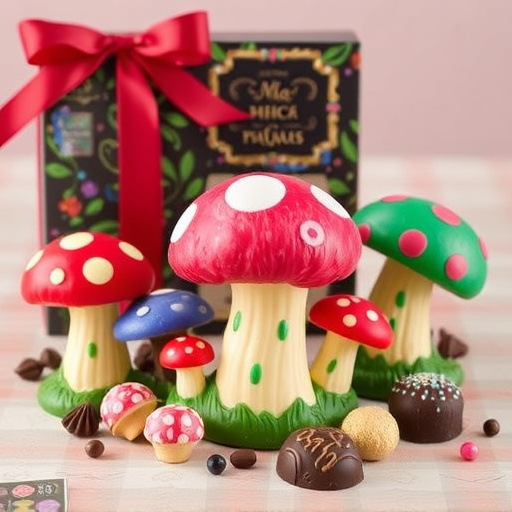
The reported benefits of Magic Mushroom Chocolates often revolve around their potential to induce altered states of consciousness, enhance creativity, and promote feelings of well-being. However, it’s crucial to approach these claims with a critical eye. Many of these perceived advantages may be attributed to the powerful placebo effect, where individuals experience positive changes simply because they believe something will work. This phenomenon is particularly relevant when dealing with substances like magic mushrooms, which have complex psychological effects that can vary greatly from person to person.
Moreover, while some users anecdotally claim lasting positive impacts, such as improved mental health or spiritual insights, there’s a lack of robust scientific evidence to support these assertions. The risks associated with consuming magic mushroom chocolates are also significant. These include potential adverse reactions, such as anxiety, paranoia, and in rare cases, severe psychotic episodes. The effects can be unpredictable, especially for those unfamiliar with psychedelic substances, underscoring the importance of thorough research and responsible consumption practices when considering any mind-altering experience.
In conclusion, while Magic Mushroom Chocolates have gained attention for their reported benefits, understanding the science behind them is crucial. The placebo effect plays a significant role in how individuals perceive their effects. Deconstructing the reported advantages and potential risks highlights the need for further research to validate these claims. As the market for Magic Mushroom Chocolates expands, being aware of both the potential and limitations of these products is essential for consumers.
